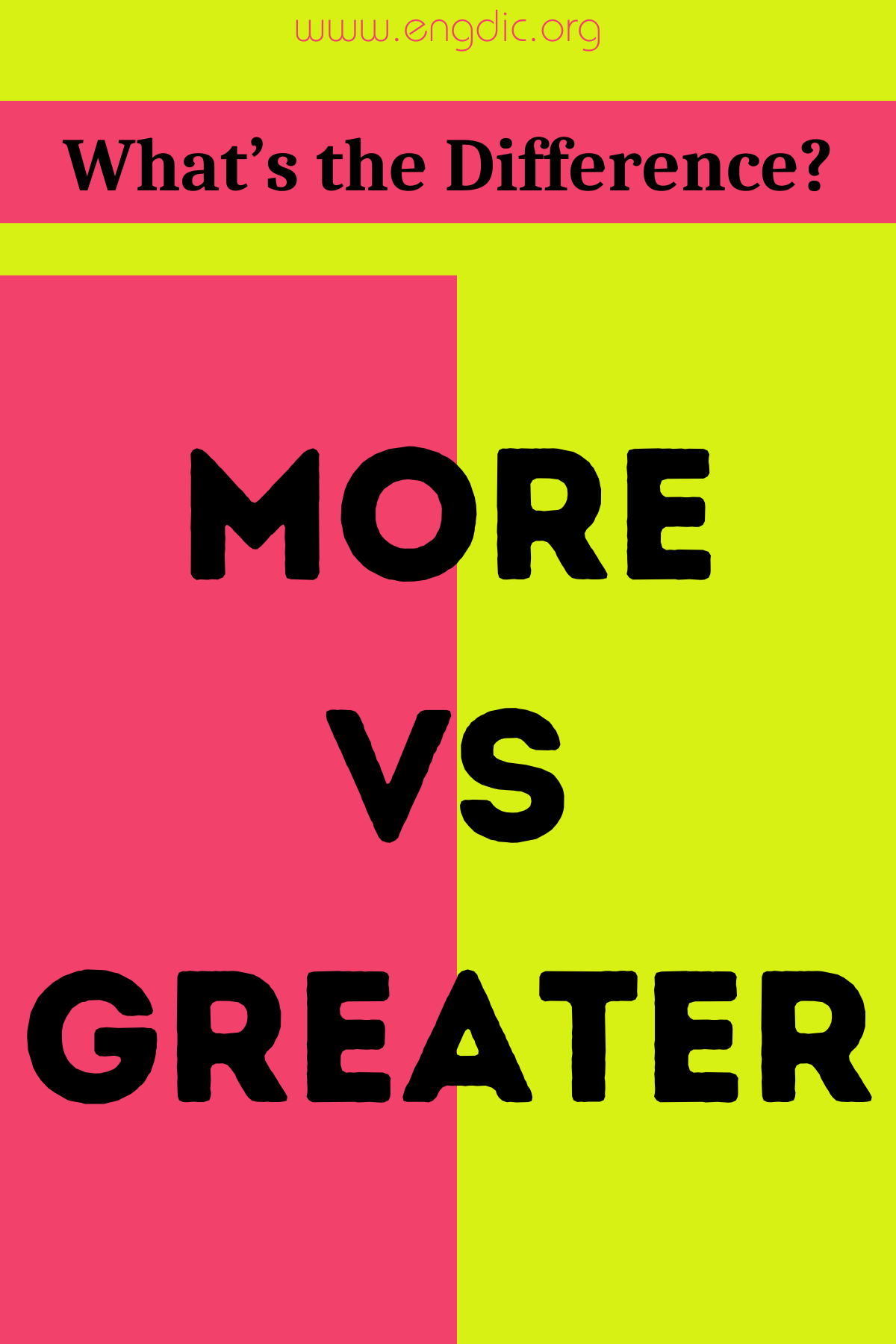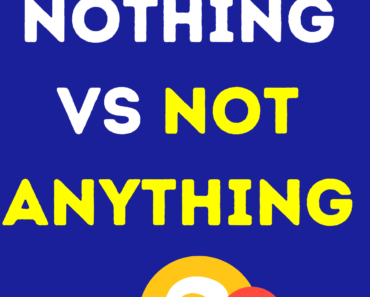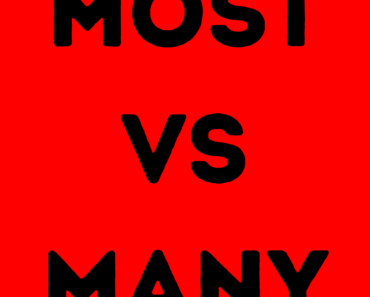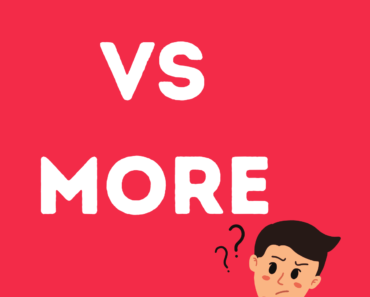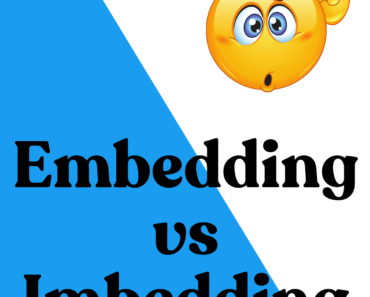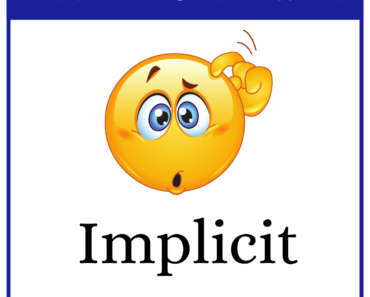When comparing “more” and “greater,” it’s essential to recognize that while both terms indicate an increase or a higher degree of something, their usage contexts differ significantly.
“More” is primarily used to denote a larger quantity or extent, applicable to both countable and uncountable nouns, making it more versatile. On the other hand, “greater” is often used to describe a higher degree or a superior quality, typically with numbers, amounts, and abstract qualities.
More
Definition: “More” is used as an adverb, adjective, or pronoun to indicate an additional quantity, amount, or degree.
Usage:
- Quantitative Increase: As an adjective or pronoun, “more” refers to a higher number of items or a greater amount.
- Example: I need more pencils.
- Example: She has more than she needs.
- Comparative Degree: As an adverb, “more” modifies adjectives and other adverbs to form comparatives.
- Example: She is more careful than her brother.
- Example: They are working more efficiently this quarter.
Greater
Definition: “Greater” is an adjective used to signify a larger size, higher degree, or superior quality, often concerning numbers, amounts, or abstract qualities.
Usage:
- Superior Quality or Degree: It emphasizes superiority or an advanced state in quality and conditions.
- Example: The greater good of the community.
- Example: His responsibilities became greater after the promotion.
- Numerical Superiority: Commonly used in mathematical or quantitative contexts to denote higher numbers or amounts.
- Example: The population of city A is greater than that of city B.
- Example: This year’s profits are greater than last year’s.
Through these definitions and examples, we see that “more” is generally used in a broader range of contexts, while “greater” is often more specific to qualities and quantities that can be measured or ranked.
